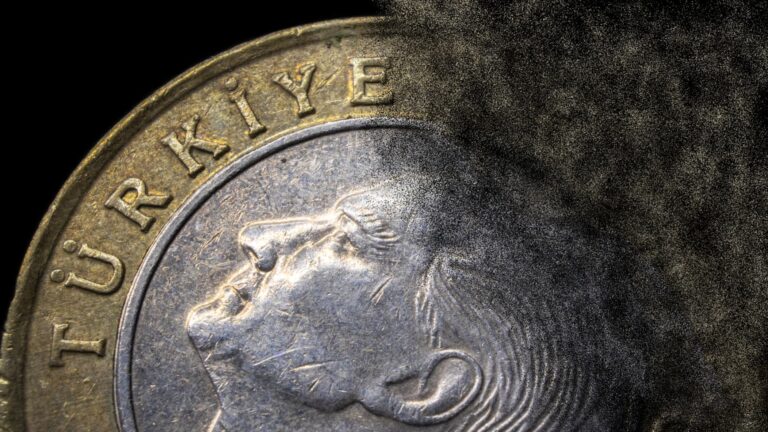Vanishing Turkish Currency: 1 Turkish Lira with the Portrait of Kemal AtatürkTurkish
Manuel Augusto Moreno | Moment | Getty Images
The Turkish lira hit a fresh record low against the U.S. dollar on Thursday, trading at 30.005 to the greenback just before noon local time.
It marks the first time that the lira has broken 30 against the dollar, which was up 0.17% against the Turkish currency from the previous day’s session.
The beleaguered lira has fallen some 37% against the U.S. benchmark over the past year, as monetary policymakers try to combat double-digit inflation by steadily raising interest rates.
The more conventional approach follows several years of unorthodox policy during which Ankara refused to tighten rates despite ballooning inflation, while Turkish President Recep Tayyip Erdogan routinely called interest rate rises “the mother of all evil.”
Inflation in the country of roughly 84 million rose to 64.8% on an annual basis in December, up from 62% in November. It’s still an improvement on the prior year, after Turkish inflation hit a peak of 85.5% in October 2022.
The lira’s weakening comes as Turkey’s top finance officials gather at J.P. Morgan’s Wall Street headquarters in New York for investor presentations focused on the country’s monetary policy, banking, assets, and financial markets.
Dubbed “Investor Day,” the inaugural event will feature question-and-answer sessions and will include presentations from new Turkish central bank governor Hafize Gaye Erkan, who was appointed in June 2023, on a range of topics, such as the country’s disinflation path. Turkish Finance Minister Mehmet Simsek will deliver presentations virtually on the outlooks for Turkish financing and fiscal policy.
Turkish outlet Daily Sabah reports the event will be attended by more than 200 senior executives from major finance institutions, including Vanguard, BlackRock, Goldman Sachs, Morgan Stanley, and J.P. Morgan.
The Turkish lira has lost more that 80% of its value against the dollar over the last five years, increasing import and foreign debt costs and dramatically weakening the purchasing power of ordinary Turkish people.
A new finance team was appointed in June last year, and Turkey’s central bank embarked on a sharp pivot, pulling rates higher under Erkan’s supervision. The country’s benchmark interest rate has since been lifted from 8.5% to 42.5%.



